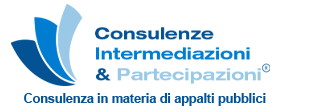The company Consulenze Intermediazioni e Partecipazioni Srl (abbreviated as C.I.P. Srl) has been operating for years in the field of specialized consultancy in public works. In carrying out its activities, it upholds the principles of freedom, human dignity, and respect for diversity, rejecting any discrimination based on gender, race, language, personal and social conditions, religious beliefs, and political views.
The Company therefore believes that adherence to ethical rules and transparency in business conduct is a necessary condition, as well as a competitive advantage, for pursuing and achieving its objectives.
To this end, C.I.P. SRL promotes the creation of an environment characterized by a strong sense of ethical integrity, with the firm conviction that this significantly contributes to the effectiveness of policies and control systems, influencing behaviors that might otherwise elude even the most sophisticated oversight mechanisms.
This document, called the “Code of Ethics and Anti-Corruption” (or simply “Code”), governs the set of rights, duties, and responsibilities that C.I.P. SRL assumes in conducting its activities toward all stakeholders who have direct or indirect relations with the company and can influence its activities or are affected by them.
The Code of Ethics is adopted by resolution of the sole director of C.I.P. SRL as a form of self-regulation and may be amended at any time. In particular, the sole director will evaluate any changes necessary due to the company’s exposure to new or additional risks.
The provisions of this Code may have various origins and natures, specifically:

